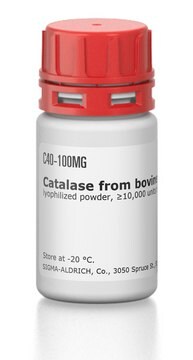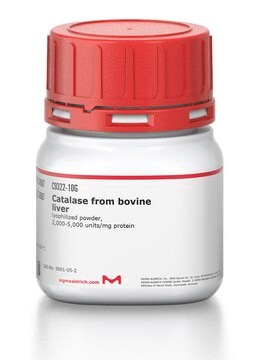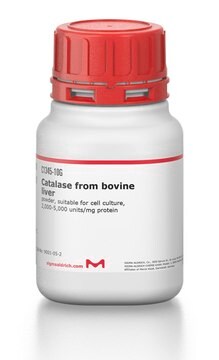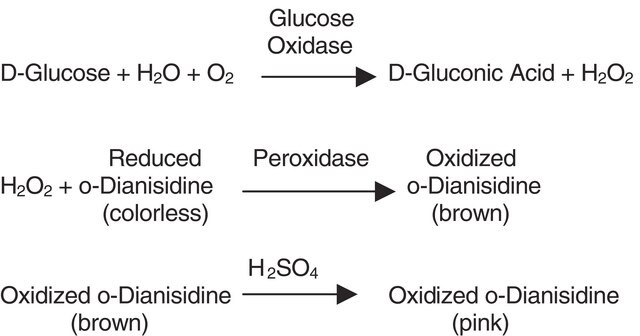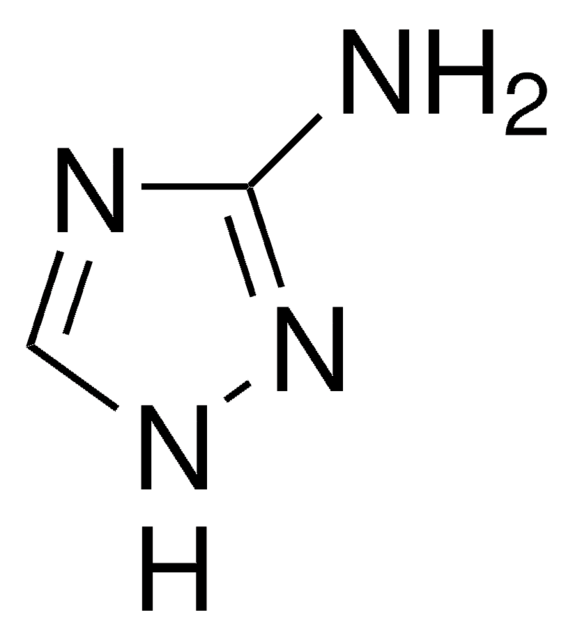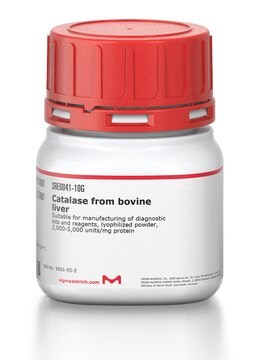C4963
Catalase−polyethylene glycol
lyophilized powder, ~40,000 units/mg protein
Sinônimo(s):
PEG-Catalase
Faça loginpara ver os preços organizacionais e de contrato
About This Item
Produtos recomendados
Formulário
lyophilized powder
Nível de qualidade
atividade específica
~40,000 units/mg protein
peso molecular
PEG 5,000
composição
Protein, ~50% E405
Extensão da rotulagem
~40 mol PEG per mol protein
ligação da matriz
secondary amine linkage.
temperatura de armazenamento
−20°C
Procurando produtos similares? Visita Guia de comparação de produtos
Aplicação
Pulmonary artery endothelial cells treated with PEG-catalase showed effective inhibition of 20- HETE (hydroxyeicosatetraenoic acid)-induced increase in fluorescence. However, the experiment excludes potential nonspecific fluorescence of DCF (dichlorofluorescein). This experiment studied the effect of 20-HETE on superoxide production and NADPH oxidase activation.
Ações bioquímicas/fisiológicas
Catalase from bovine liver catalyzes the decomposition of H2O2 into water and oxygen. It is a tetramer consisting of four equal subunits with a molecular weight of 60 kDa each. Each subunit contains iron bound to a protoheme IX group. The enzyme also strongly binds NADP, which is in close proximity to the heme group. Catalase activity is constant over the pH range of 4.0-8.5. The pI is found to be 5.4. The enzyme activity is inhibited by 3-amino-1-H-1,2,4 triazole, cyanide, azide, hydroxylamine, cyanogen bromide, 2-mercaptoethanol, dithiothreitol, dianisidine, and nitrate. Incubation of catalase with ascorbate or ascorbate/Cu2+ results in degradation of the catalase molecule. It does not require any activators.
Embalagem
Package size based on protein content
Outras notas
Catalase from bovine liver coupled to methoxy-polyethylene glycol.
forma física
Contains PEG plus 5% citrate buffer salts
Código de classe de armazenamento
11 - Combustible Solids
Classe de risco de água (WGK)
WGK 3
Ponto de fulgor (°F)
Not applicable
Ponto de fulgor (°C)
Not applicable
Equipamento de proteção individual
Eyeshields, Gloves, type N95 (US)
Escolha uma das versões mais recentes:
Já possui este produto?
Encontre a documentação dos produtos que você adquiriu recentemente na biblioteca de documentos.
Os clientes também visualizaram
Joe Nassour et al.
Nature communications, 7, 10399-10399 (2016-01-30)
The main characteristic of senescence is its stability which relies on the persistence of DNA damage. We show that unlike fibroblasts, senescent epithelial cells do not activate an ATM-or ATR-dependent DNA damage response (DDR), but accumulate oxidative-stress-induced DNA single-strand breaks
Jeremiah D Keyes et al.
Free radical biology & medicine, 112, 534-543 (2017-08-28)
ERK-dependent signaling is key to many pathways through which extracellular signals are transduced into cell-fate decisions. One conundrum is the way in which disparate signals induce specific responses through a common, ERK-dependent kinase cascade. While studies have revealed intricate ways
Emeric Deruy et al.
PloS one, 5(9), e12712-e12712 (2010-09-22)
Senescence is a state of growth arrest resulting mainly from telomere attrition and oxidative stress. It ultimately leads to cell death. We have previously shown that, in keratinocytes, senescence is induced by NF-kappaB activation, MnSOD upregulation and H(2)O(2) overproduction. We
Kathleen D Metzler et al.
Cell reports, 8(3), 883-896 (2014-07-30)
Neutrophils contain granules loaded with antimicrobial proteins and are regarded as impermeable organelles that deliver cargo via membrane fusion. However, during the formation of neutrophil extracellular traps (NETs), neutrophil elastase (NE) translocates from the granules to the nucleus via an
Puvi N Seshiah et al.
Circulation research, 91(5), 406-413 (2002-09-07)
Angiotensin II (Ang II)-stimulated hypertrophy of vascular smooth muscle cells is mediated by reactive oxygen species (ROS) derived from NAD(P)H oxidases. The upstream signaling mechanisms by which Ang II activates these oxidases are unclear but may include protein kinase C
Nossa equipe de cientistas tem experiência em todas as áreas de pesquisa, incluindo Life Sciences, ciência de materiais, síntese química, cromatografia, química analítica e muitas outras.
Entre em contato com a assistência técnica
